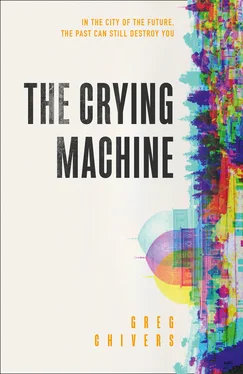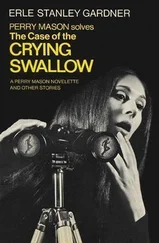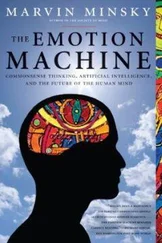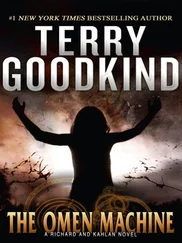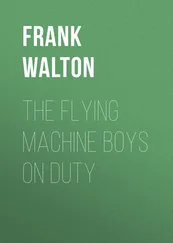‘Something about repatriating some statues recovered from Palmyra. He says the Russian envoy in Damascus is insisting they be returned. Their presence in our Museum of Antiquities is “naked cultural larceny”.’
‘Vasily said that?’
‘No, that was Damascus.’
Silas stays silent, taking a moment to savour the subtext of what is, on the face of it, a banal request for a few lumps of badly eroded sandstone. The Damascene government styles itself as the flag-bearer for a new style of democracy in the Middle East, but in truth they are masters of an irradiated shit heap, dancing to the tunes of their masters in Sverdlovsk. Of all the Republic of Humanity’s client states, Damascus is the runt of the litter. The statues will no doubt be part of some gambit to claim cultural consanguity with the dead nations who used to occupy the real estate – a preamble to making wider territorial claims.
‘Fuck them … No, wait a minute – these statues – are they any good?’
‘They’re unique: representations of Moloch recovered from the ruins of the temple of Baal in Palmyra. To the Shias and the Haredim they’re blasphemies – both regard them as representations of Satan – but culturally they’re significant, so we have them on display.’
‘So getting rid of them could actually make a lot of people happy?’
‘And annoy anyone in the city who cares about real history.’ A mischievous smile curls the edges of Sybil’s lips. This is what visitors to Silas’s office do not see – the perfect sympathy, the way she moulds herself to his needs. It is a gift almost beyond price.
‘You’re making this decision too easy. Call the relevant curator. Tell him to pull the Moloch stuff from display and get it ready for transit.’
Sybil’s gaze drops and she shifts awkwardly in her seat. ‘Ah, I’m afraid that won’t be straightforward. Boutros wasn’t in today. Nobody seems to know where he is.’
‘Boutros?’
‘The “sanctimonious plank” who raised an official protest when you moved the Antikythera Mechanism into storage. He hasn’t turned up to work since.’
‘I imagine it’s some sort of protest. Never mind, with any luck, he’ll keep himself out of the picture for a while. Honestly, the fuss that man makes, you’d think he owned the bloody thing. And he used to seem such a reasonable sort too. Well, you’ll have to get someone else to deal with the statues. It doesn’t take a PhD to cover a statue in bubble wrap and tape … and call Vasily. Tell the Russian bastard he owes me a favour.’
‘Of course. Would you like to run through your schedule now?’
‘No, I need you to make some excuses for me. I’m going to court.’
Her head tilts. ‘Court?’
‘Our esteemed Chief Justice is presiding over a case that could cause him a little trouble. I might just catch the end of the evening session if I’m quick. I sense an opportunity here and I don’t want to miss it. Is there anything that can’t wait?’
She makes a face and swallows the answer she wanted to give. ‘Just some griping. Nothing I can’t handle.’
The prophet’s eyes shine with the moist intensity of the unhinged, as if some hidden wellspring of emotion was constantly threatening to overflow. Beneath weeks of hair and dirt he is still a handsome man, an anomaly in a courtroom packed with decaying functionaries of the legal system. When he speaks, his teeth glint bright white between lips cracked and darkened by the sun.
‘The Lord will be my judge.’
The actual judge seems unaffected by the implied insult. From Silas’s seat in the galleries, Amos Glassberg might be a statue of Solomon, a lean figure swathed in purple fabric that can serve no practical purpose but to evoke the required history. The whole courtroom is an absurd parody of something imagined from the city’s ancient past. Faux marble covers the walls and the steps leading up to the raised judge’s chair. In places it is cracked and warped. Where moisture leaks around the outlets for the air-conditioning units, it darkens with mould. The cool they bring is worth a little rot. The heat of human bodies pressed together in the galleries is relentless.
Of course, the Solomon schtick is all part of Amos Glassberg’s carefully cultivated image. The city’s Justice Minister might be boredom incarnate, but he possesses a canny instinct for what the people want from the law, and in public he always maintains the stoic visage of a father governing quarrelsome children. Jerusalem doesn’t do kings anymore, or even heads of state – the idea of all that power in the hands of one person is unacceptable to everyone who knows it won’t be their man. Glassberg is as near to a ruler as the city’s broken democracy permits. Other ministers have their fiefdoms, but all are answerable to the law. He rests an elbow on the elaborately carved arm of his judge’s seat and addresses the man in the dock. ‘I see. And which Lord would that be?’
A gentle smile calms the deranged face, hinting at some hidden joke, but Glassberg ignores it. He has seen too many messiahs fall into the trap of thinking this is a real conversation. This one is only the latest in the recent wave of immigrant Christian criminals to fill the courts. At moments like this, it is all too clear the centuries have not diminished the city’s fearsome appetite for martyrs. Their particular faith seems to be of no consequence. Prophets, poets, and crusaders have all placed Jerusalem at the centre of Creation, and the people of the city love and fear them for it. The trouble is, however bright the ideal shines, the intellectual property is still tied to this grubby real estate surrounded by desert. When the conceptual city collides with the reality, the spectacle of collision draws the public to the courtroom like flies to a slaughterhouse. Glassberg knows this. Despite the staid exterior, his feel for the ebb and flow of the city’s passions rivals Silas’s own, which is why he must go.
The judge’s gaze turns from the prophet to the prosecutor, a heavyset, middle-aged man uncomfortable in a tunic that reveals legs which, on balance, would be better hidden. ‘What is the charge levelled at the accused?’
‘Conspiracy to commit acts of terror, sedition, and criminal damage, your honour.’ He straightens his skirt and tugs unconsciously at his wig. The outfit is another stab at Bronze Age retro, supposed to be an authentic representation of priestly garb from the era of the First Temple, but cheaper than the ministerial robe, and about as authentic as this courtroom. In another city, you might mistake the prosecution team for inept middle-aged transvestites, but history in Jerusalem is currency, and even a forgery is worth something.
‘What form did this “terror” take?’
‘On the second of August, he led an occupation of the Talbiya branch of K-Nect-U implant clinics. His followers vandalized the property and destroyed implants valued at almost two million shekels.’
Glassberg leans back in his seat. A sigh of impatience escapes him. ‘Counsellor, what you are describing is a public order offence, culminating in criminal damage. I hope there is a reason you have elevated this to the city’s highest court. Furthermore, I hope that reason is unconnected to the cameras we have present.’
A murmur passes through the room. Glassberg has addressed the elephant directly. He does that. Anyone who’s spent time in his courtroom should know it, and yet somehow it always surprises people. It is one of the gifts that make him dangerous.
The prosecutor squirms. His plastic smile does a poor job of deflecting the implicit accusation: that the trial is political pantomime for the cameras, headline fodder for news feeds fuelling the fears of the anti-immigrant brigade. ‘Please bear with me, your honour. The list of charges is extensive.’
Читать дальше
